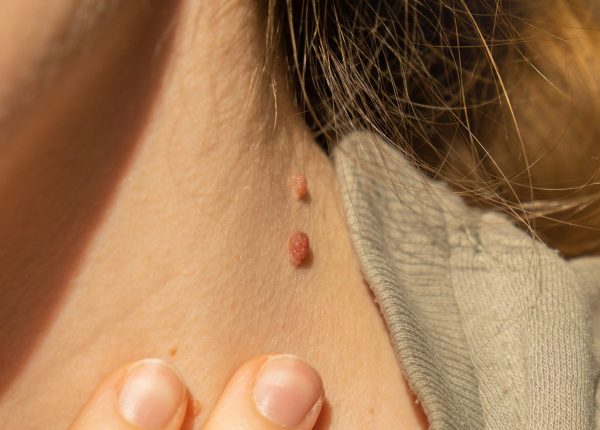Medrose Medical Center | Barsha Heights, Tecom
Fast and Safe Skin Tag Removal in Dubai
Skin tags are small, usually soft growths that appear on the skin. They are tiny flaps of skin that generally form in areas of the body where there is repeated friction or stretching, such as the neck,
armpits, inner thighs, under the breasts, and eyelids.
Causes
The exact causes of skin tag growth are still not fully understood. However, some factors that may be associated with them include:
- Friction: It is believed that repeated friction between the skin and clothing or between the skin itself can lead to the appearance of skin tags.
- Genetic factors: Genetics may play a role in the development of skin tags, as some people seem to be more prone to developing them.
- Hormonal changes: Hormonal changes in the body, such as those that occur during pregnancy, may affect the growth of skin tags.

Skin Tag Removal in dubai and Health Conditions
While skin tags are typically harmless from a medical standpoint, they can sometimes indicate underlying health conditions. For example, skin tags may be more common in individuals with high cholesterol, diabetes, or insulin resistance. However, more research is needed to determine the exact relationship between these conditions and skin tags.
Treatment:
Although skin tags are usually harmless, some people may choose to have them removed for cosmetic reasons or because they cause irritating friction. There are several ways to treat skin tags, including:
Surgical removal: A doctor can remove the skin tag by cutting it off with scissors or a scalpel. This procedure is typically done using a local an aesthetic to numb the area first.
Cryotherapy: The skin tag can be frozen off using liquid nitrogen. This treatment is typically done in the doctor’s office and may cause some discomfort or stinging.
- Electrocautery: The skin tag can be burned off using an electrical current. This procedure is typically done using a local an aesthetic to numb the area first.
Looking for effective skin tag removal in Al Barsha Heights, Tecom, Dubai?
Contact us at 055-263-3890 to schedule your consultation and explore our specialized skin tag treatments. Let us help you achieve smooth, clear skin with safe and efficient solutions tailored to your needs.
No, skin tags are not contagious.
No, skin tags are not cancerous and do not pose a risk of developing into cancer.
Please do not cleanse or apply additional products to your skin for 4-6 hours after your procedure.
No, skin tags do not usually go away on their own.
While there is no guaranteed way to prevent skin tags, taking steps to reduce friction and avoid irritation in areas prone to skin tag growth may be helpful.
While some home remedies may be suggested, it is important to consult a doctor before attempting to remove a skin tag at home. Home removal can be risky and may cause bleeding, infection, or scarring.

